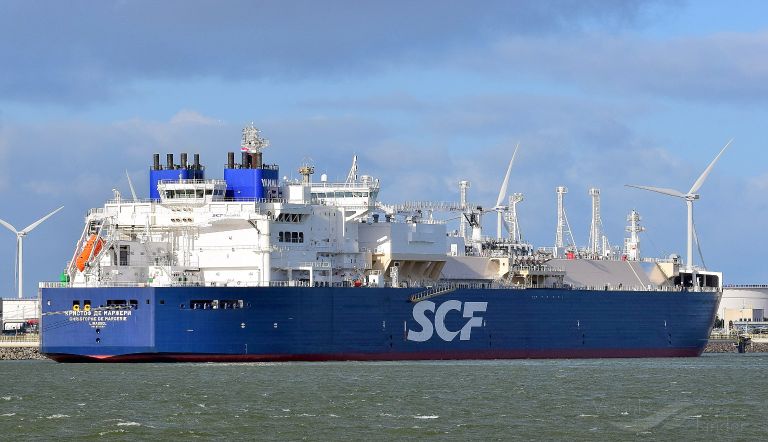On 28 October 2020, SCF Group (SCF) and Arctic LNG 2, the operator of the Arctic LNG 2 project, concluded 30-year time charter agreements for three new icebreaking LNG carriers (cargo capacity of 172,410 cbm, ice class Arc7). These vessels were ordered by SCF at Daewoo Shipbuilding & Marine Engineering (DSME, Republic of Korea) earlier in October 2020, following the tender held by the project’s operator.

All three new vessels are scheduled for delivery in 2023. They will fly the Russian flag and have Russian crews.
Igor Tonkovidov, President & CEO of SCF, commented:
“Strengthening SCF’s position in LNG shipping segment is amongst the priorities of our current long-term development strategy, which is aimed at growing highly visible long-term, cyclically resistant and higher-margin infrastructure cash flows. The total contract backlog relating to these new time charter agreements, over the 30-year charter period, is estimated at USD 4.2 billion. This will increase SCF’s total contract backlog to approximately USD 24 billion. I want to use this opportunity to thank our partners at NOVATEK, as well as its subsidiaries operating the Yamal LNG and the Arctic LNG 2 projects, for their support in implementing LNG projects in the Russian Arctic, which are of significant importance for the Russian economy, and I am looking forward to the next stage of our close collaboration.”
New LNG carriers are designed using SCF’s extensive experience of safely operating Christophe de Margerie, the world’s first icebreaking LNG carrier, which has been serving the Yamal LNG project since 2017. They will each feature a propulsion system comprising three Azipod units with a total capacity of 51 MW, which is comparable to that of 50 Let Pobedy, a nuclear-powered icebreaker (55 MW), and is almost 60 per cent higher than that of Lenin, the world’s first nuclear-powered icebreaker (32.4 MW). This propulsion system is expected to provide new vessels with increased speed and manoeuvrability when sailing in ice conditions, compared with icebreaking LNG carriers of the previous generation.
The delivery of this new generation of icebreaking LNG carriers should contribute towards opening year-round navigation along the eastern sector of the Northern Sea Route.
At present, SCF has 15 gas carriers in operation and a further 19 under construction.